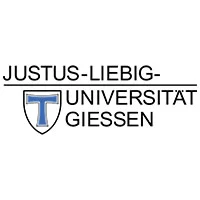Justus-Liebig-University Giessen
Germany | Giessen, Germany

Germany | Giessen, Germany


In contrast to the standard tripartite structure used in many countries' tertiary education systems (e.g., B.A. or B.Sc., followed by M.A. or M.Sc., and then a Ph.D.), German universities have a different academic progression. The process typically begins with a period of foundational or junior studies (lasting at least four semesters), culminating in an intermediate exam (a non-degree exam). This is followed by advanced studies, which last a minimum of 6-8 semesters. At the end of this stage, students take their first major exams, often referred to as state or university examinations. The doctoral studies, or promotion, follow directly from this first degree, without additional post-graduate studies unless pursued as an extension in specific fields (e.g., German as a Foreign Language, Informatics, or mag. iuris for law).
For foreign applicants, acceptance into doctoral programs requires that their previous academic qualifications be considered equivalent to a German degree, as determined by a Doctoral Committee (Promotionsausschuss). To begin a doctoral study at Justus Liebig University, students must secure a professor who is willing to supervise their research. Doctoral research is typically self-guided and involves preparing a dissertation over 2 to 4 years, followed by an oral defense. While formal coursework is not required, students can attend classes if desired.
If a foreign qualification is deemed non-equivalent, applicants may need to complete further study in a related non-doctoral degree program before pursuing their doctorate. Additionally, entry into restricted fields may be subject to student number limitations.
Justus Liebig University in Giessen currently enrolls approximately 20,000 students, including 1,700 international students, and offers over 150 different programs across 11 departments.
As of 2025, Justus Liebig University Giessen is ranked 445 in the QS World University Rankings. It has been consistently positioned within a similar range in other major global rankings, such as in the Shanghai ARWU, where it holds a place around the 622nd spot. This reflects the university's strong academic reputation, particularly in research, with notable contributions in various fields such as agriculture, natural sciences, and economics.
No courses available for this university.